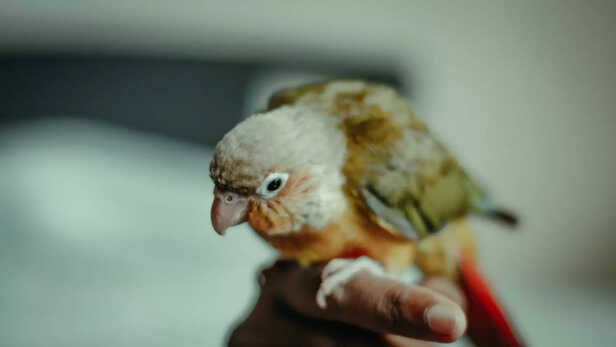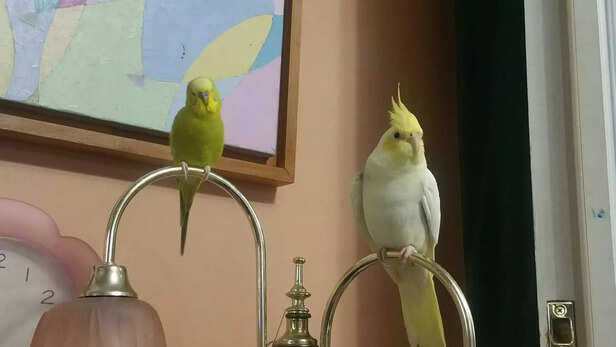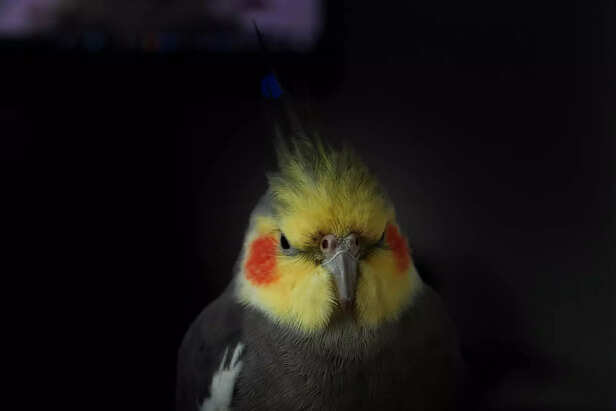Colorful Conure Calm
( Image credit : Unsplash )
Birds are vibrant, intelligent companions, and their health depends significantly on what they eat. One of the most common questions bird owners ask is whether their pet needs dietary supplements. The answer is not always straightforward. While some birds thrive on well-balanced diets without added supplements, others may need extra help due to their lifestyle, diet, or health conditions. Understanding your bird’s nutritional needs is the first step toward ensuring its long, healthy life.
Understanding a Bird’s Natural Diet
In the wild, birds enjoy a diverse and nutrient-rich diet. Depending on the species, their meals might include fruits, seeds, flowers, insects, nectar, and even small bits of grit or soil, which help with digestion. This varied diet naturally balances their intake of vitamins, minerals, protein, and other nutrients. In contrast, pet birds often rely on the limited variety of food provided in captivity. When this diet isn’t adequately planned, nutritional imbalances can occur. Many pet birds are fed seed-based diets, which can be low in essential nutrients like calcium, Vitamin A, and Vitamin D3. While seeds are high in fat and energy, they don’t offer the full nutritional spectrum birds require. Over time, this can lead to health problems such as weak bones, poor feather condition, or even compromised immune function.
When Supplements Become Necessary
Supplements may be necessary in certain situations, especially when a bird’s natural or provided diet doesn’t meet all its nutritional needs. One such scenario is when birds are fed a seed-only diet. While seeds may be tasty and convenient, they lack critical vitamins and minerals. Birds on such diets may suffer from deficiencies that can be prevented or corrected with supplements. Another common reason for supplementation is the life stage of the bird. Breeding birds or those laying eggs have a higher requirement for calcium and Vitamin D3 to support eggshell production and prevent depletion of calcium from their own bodies. Similarly, molting birds those shedding old feathers and growing new ones may require extra nutrients like zinc and protein to support healthy feather regeneration. Birds that are sick, recovering from surgery, or under stress may also benefit from additional nutrition. In such cases, supplements help boost the immune system and support recovery. Likewise, young chicks being hand-fed require specialized formulas that include all essential vitamins and minerals to support growth.
Different Types of Bird Supplements
Bright Bird Duo
( Image credit : Unsplash )
Bird supplements are available in many forms, including liquid drops, powders, sprays, cuttlebones, and mineral blocks. Multivitamin drops are often added to water or soft foods and can help fill general dietary gaps, particularly in seed-fed birds. Calcium supplements come in powder or liquid form, and are especially important for breeding females. Cuttlebones serve a dual purpose, providing both calcium and an outlet for birds to trim their beaks.
Some supplements contain probiotics and digestive enzymes, which support gut health and overall immunity. These are particularly useful when a bird is on antibiotics or adjusting to a new diet. Omega-3 fatty acids, often derived from flaxseed or fish oils, are used to promote healthy skin, shiny feathers, and proper neurological function.
Choosing the Right Supplement
Choosing the right supplement depends on a variety of factors including the bird’s species, age, activity level, and current diet. If your bird eats a balanced, pelleted diet, additional supplements may not be necessary. Pelleted foods are generally designed to provide complete nutrition. In such cases, unnecessary supplementation could actually be harmful.
However, if your bird is on a seed-based or homemade diet, supplementation may be beneficial. Some species, such as African Grey parrots, are particularly sensitive to deficiencies and may require additional Vitamin A or calcium. Others, like budgerigars, may be prone to iodine deficiency. It’s also important to note that just because a bird looks healthy doesn’t mean it isn’t deficient in something many nutritional imbalances can be hidden until they become serious.
The best way to determine what your bird needs is through a consultation with an avian veterinarian. A professional can assess your bird’s diet and health, possibly conduct blood tests, and recommend a supplement plan tailored specifically to your bird.
Dangers of Over-Supplementing
Cockatiel Close-Up
( Image credit : Unsplash )
While supplements can be beneficial, they also carry risks if used incorrectly. More is not always better, and overdosing on certain nutrients can be dangerous. Fat-soluble vitamins like A, D, E, and K are stored in the body rather than excreted, which means they can accumulate to toxic levels. Too much Vitamin A can damage the liver, while excessive Vitamin D can result in calcium deposits in soft tissues, causing serious organ problems. Calcium, when not balanced properly with phosphorus and Vitamin D3, can also lead to health issues such as kidney stones or joint stiffness. Over-supplementing can mask underlying health problems, making it harder to identify the root cause of your bird’s symptoms. That’s why it's crucial to use supplements responsibly and under veterinary guidance.
Natural Ways to Meet Nutritional Needs
Instead of relying heavily on supplements, many bird owners turn to dietary improvements as a more natural solution. Providing fresh fruits and vegetables daily can supply birds with many of the vitamins they need. Dark leafy greens like kale, spinach, and collard greens are excellent sources of Vitamin A. Carrots, pumpkin, and sweet potatoes also offer beta-carotene, which is converted into Vitamin A in the body. Whole grains like brown rice, barley, and quinoa provide essential minerals, while legumes such as lentils and chickpeas add protein and iron. These foods should be cooked and offered in small, bird-safe portions. Variety is key rotating fruits, vegetables, and grains helps ensure your bird receives a broad spectrum of nutrients. Many avian vets recommend transitioning birds from seed-only diets to pelleted diets. These pellets are nutritionally complete and significantly reduce the risk of deficiencies. Although some birds are reluctant to switch, the transition can be made smoother by slowly mixing pellets with seeds and offering them during the hungriest part of the day.
Signs That Your Bird May Need Supplements
Birds often hide signs of illness, so any subtle change in behavior or appearance should not be ignored. A bird that is losing feathers outside of molting season, showing dull or ragged plumage, or appearing lethargic may be experiencing nutritional deficiencies. Other warning signs include changes in appetite, beak or nail deformities, difficulty breathing, or laying soft-shelled or shell-less eggs. If you observe these signs, it’s important to consult a veterinarian rather than self-diagnosing and starting supplements on your own. Some symptoms may mimic those of infections, metabolic disorders, or parasites, so professional evaluation is essential.
Consulting a Veterinarian is Key
Every bird is different, and so are its nutritional needs. An avian vet can help you determine whether your bird’s diet is lacking and whether supplements are necessary. Bloodwork and physical exams often reveal imbalances not visible to the naked eye. A vet can also advise on dosing and duration, helping you avoid complications associated with inappropriate use. Supplements should never be used as a substitute for a poor diet. Instead, they should be seen as a supportive measure in a well-rounded care routine. Whether your bird needs extra calcium, a multivitamin blend, or a probiotic, using these tools under professional supervision ensures they contribute to your bird’s health rather than putting it at risk.
In conclusion, while not all birds need supplements, many do benefit from them under specific circumstances. Birds on seed-only diets, those that are breeding, molting, or recovering from illness often require extra nutritional support. However, supplementation should always be tailored to the individual bird’s needs and administered responsibly.
A well-balanced diet remains the most important foundation for a healthy bird. Providing a mix of pellets, fresh produce, and whole grains is the best strategy. When in doubt, consult a qualified avian veterinarian who can help you make the right choices. With proper care and attention to their nutritional needs, your bird can enjoy a vibrant and healthy life for many years to come.
Discover expert advice and the latest tips on pet care, training, health, and more. Stay updated with all things pets at
Times Pets!
- Do all pet birds need supplements?
No, birds on balanced pelleted diets may not need any. - When are supplements necessary for birds?
During molting, breeding, illness, or on seed-only diets. - Can supplements harm my bird?
Yes, over-supplementation can cause serious health issues.



